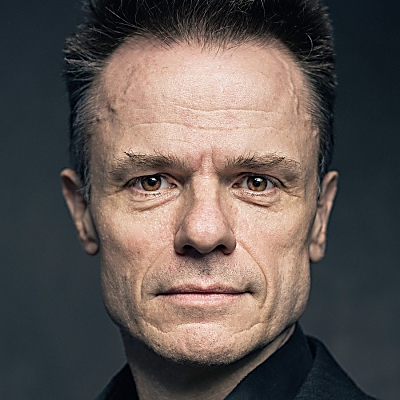Early career
George Dillon first acted in a student production of East by Steven Berkoff while studying English & Philosophy at Manchester University. He changed course to do Drama, performed in 24 student productions, including five directed by Laurence Boswell and one by Ben Elton, and won a Best Supporting Actor Award at the National Student Drama Festival.
While at University he also directed Pushkin’s Mozart & Salieri and produced and directed Much Ado About Nothing for a tour of Manchester schools.
After graduating, George Dillon formed No Alternative Theatre Company with Denise Evans and over the next three years he toured in Berkoff’s plays Decadence and Greek before working with Steven Berkoff for the first time appearing in Sink The Belgrano!

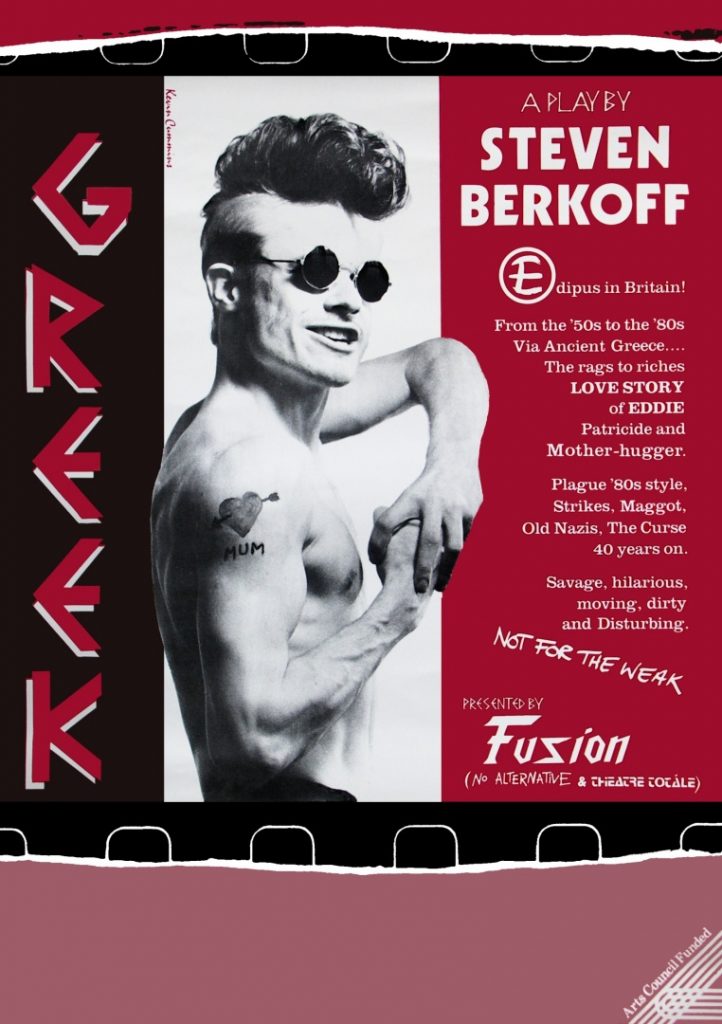

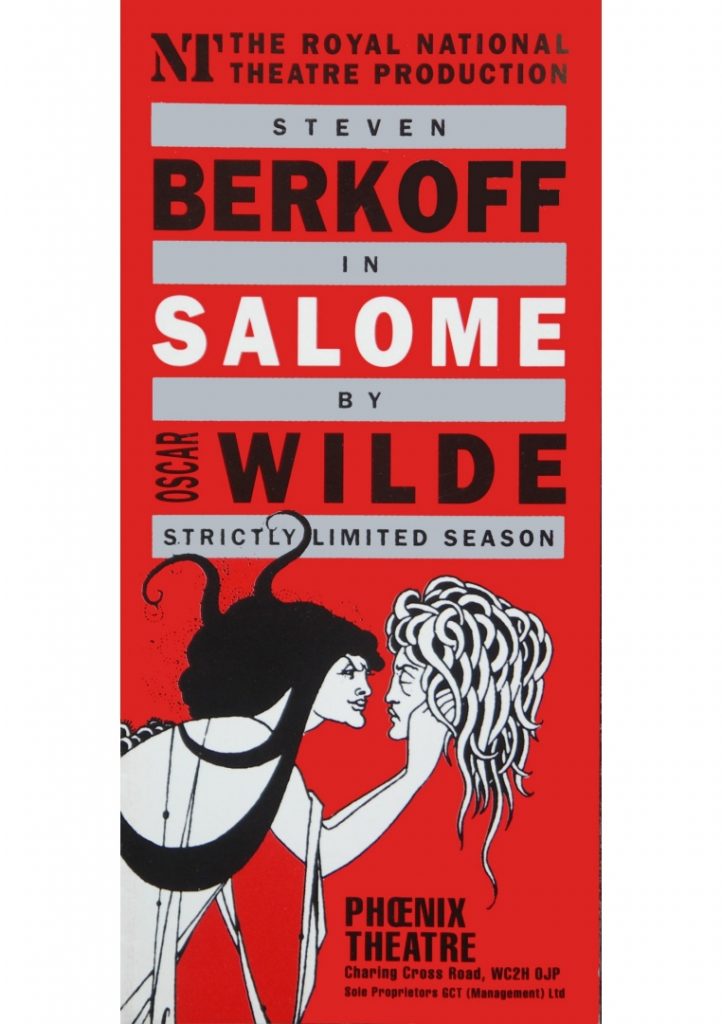
After making his film debut in Hannah’s War and assisting Polish actress Dorota Stalinska on an English version of her solo show The Viper, George was planning his own solo show when Steven Berkoff asked him to perform in and also to be assistant director on Oscar Wilde’s Salomé at the Royal National Theatre in 1989.
Solo
In May 1990, Dillon staged his first solo show, Barry Collins’s epic Judgement – a three hour tale of murder and cannibalism – which ran for three weeks in a 30-seat room above a pub during the Brighton Festival. In July he premiered a solo triple-bill, Stunning the Punters (and Other Stories) which was one of the critical hits of the 1990 Edinburgh Fringe, and was nominated for The Independent Theatre Award.
After touring Judgement and Stunning the Punters, two more solo shows followed – Berkoff’s Hell & Other Tales and Dillon’s own The Remembrance of Edgar Allan Poe – establishing a practice of always keeping at least three one-man productions in his touring repertoire, which he has maintained to this day.
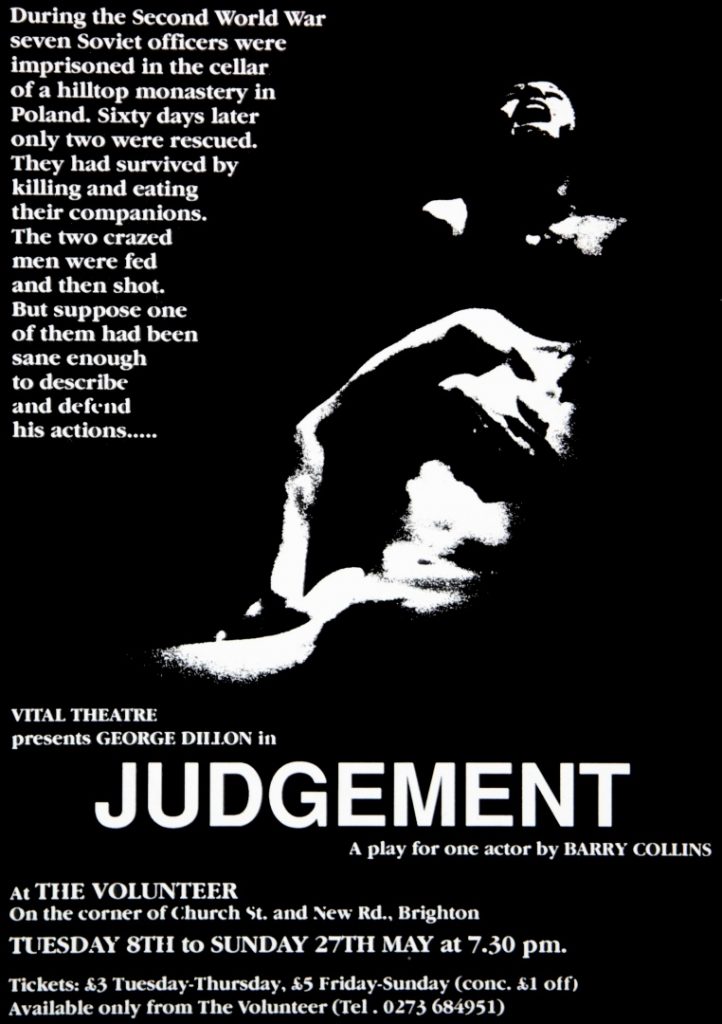
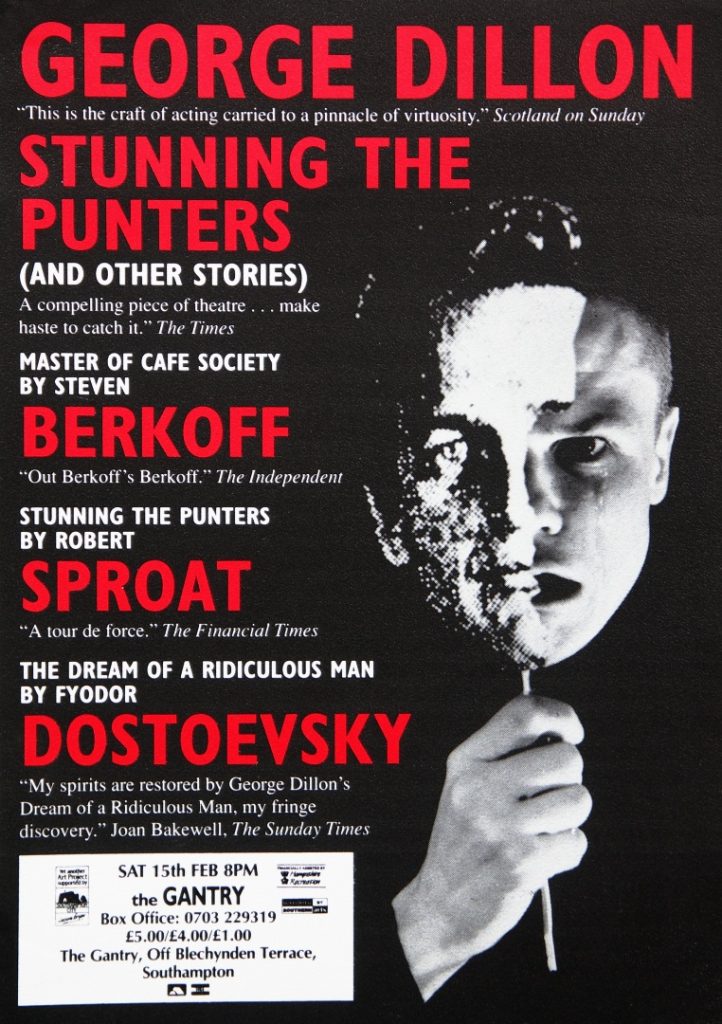
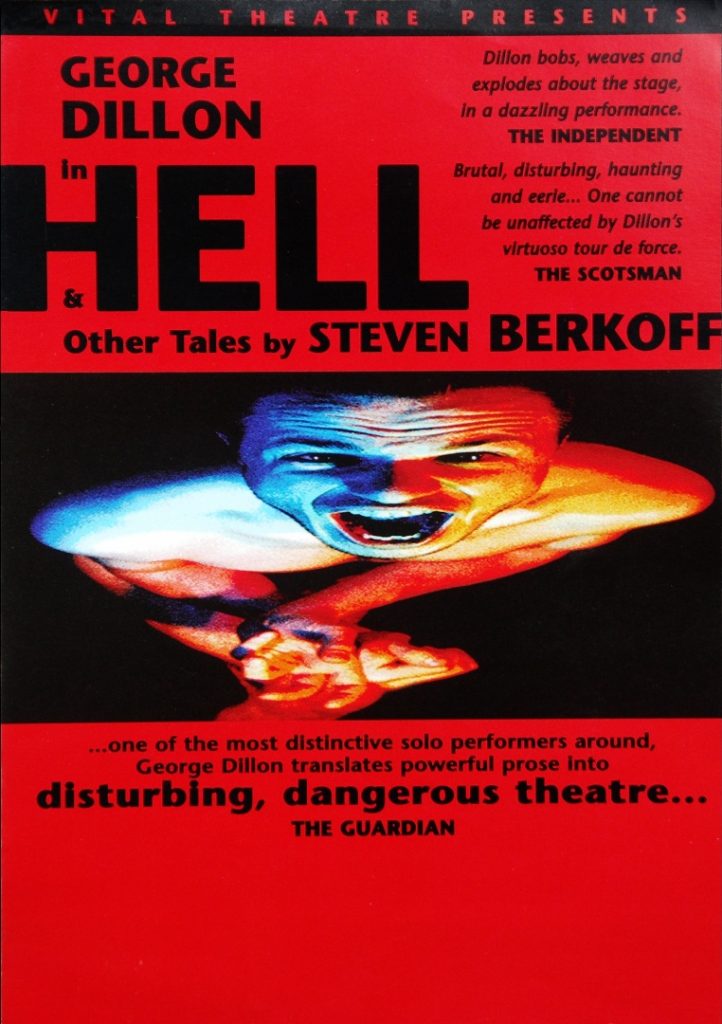
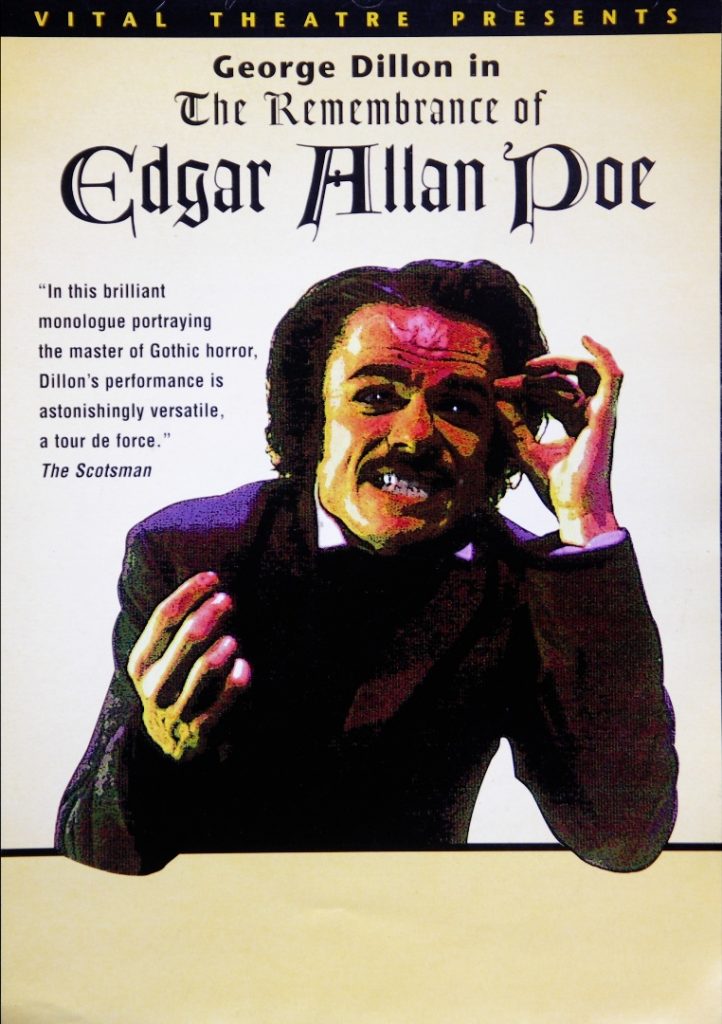
Hamlet
In 1995, Dillon produced, directed and played the title role in a Kurosawa/Tarantino inspired production of Hamlet with 7 actors, 2 musicians and a talking dog! Half an hour before going on stage at the Assemby Rooms in Edinburgh he learned that he was to become a father and eight months later his daughter Orla was born on the date assumed to be Shakespeare’s birthday – 23rd April. His son, Teige, was born in 1998.

International solo
Dillon returned to Edinburgh in 2000 with his fifth solo show, Graft – Tales of an Actor, adapted from Steven Berkoff’s short story collection. For his performance in Graft Dillon won a Herald ‘Angel’ Award and nominations for The Stage’s ‘Best Actor’ award and the Manchester and London Fringe Theatre awards. Graft went on to tour extensively in the UK and, with the support of the British Council, internationally.
Committed to producing his own work, Dillon realised a long held vision when he translated, directed and performed in a solo multimedia production of The Gospel of Matthew for the Brighton Festival in 2002, with original music played live by Charlotte Glasson and Stu Daye and video projection mixed live by a team of seven VJs. The show went on to earn him a second nomination for the Stage’s ‘Best Actor’ award at Edinburgh in 2003, and the whole show was filmed and broadcast on Scottish TV in 2004. Three years later Dillon freed his performance from the technical requirements of a 21st century studio theatre to create The Gospel of Matthew by Candlelight. Going totally ‘unplugged’ enabled him to accept many invitations to perform in churches and lead to an appearance before 400 people in a tent at the Greenbelt Festival in 2011 and a 20-date church tour during Lent 2017.
Dillon’s seventh solo show was inspired by Hamlet’s dying words – “What a wounded name I leave behind me, things standing thus unknown” – and tells the story of Edward de Vere, the 17th Earl of Oxford, who was identified in the early 20th century as the most likely author of the works usually attributed to a semi-literate grain merchant from Stratford. The Man Who Was Hamlet attracted several five star reviews in Edinburgh and led to an invitation to take four of his solo shows to the Atlantic Fringe Festival in Canada, together with Jade Blue’s one woman show Against the Odds, which he co-wrote and directed and for which he won the Outstanding Direction award.
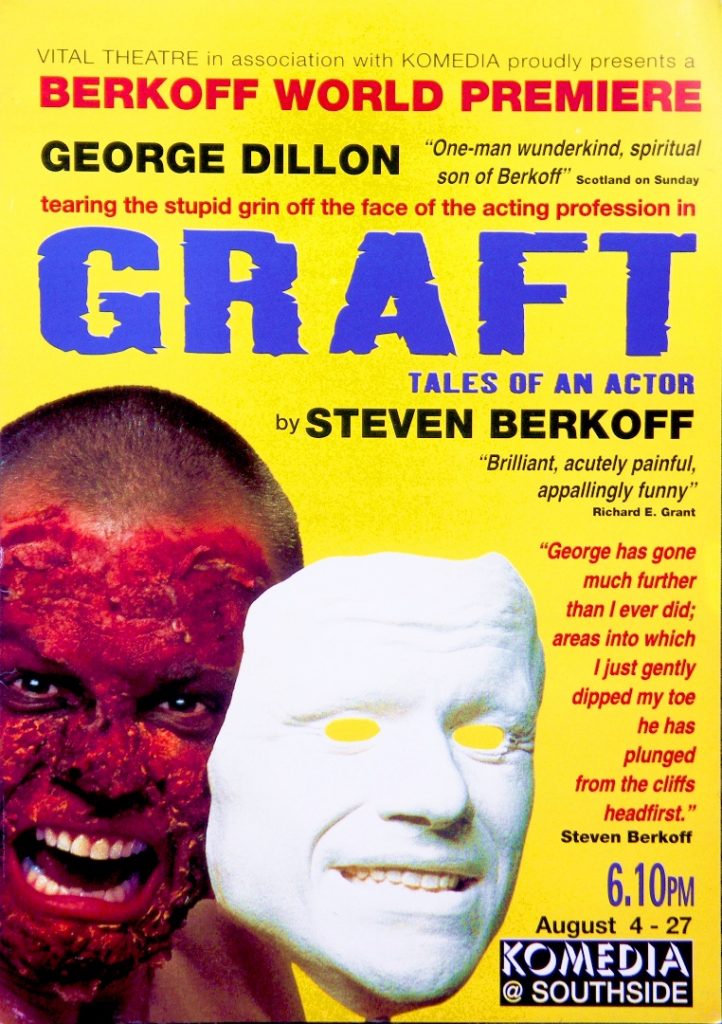
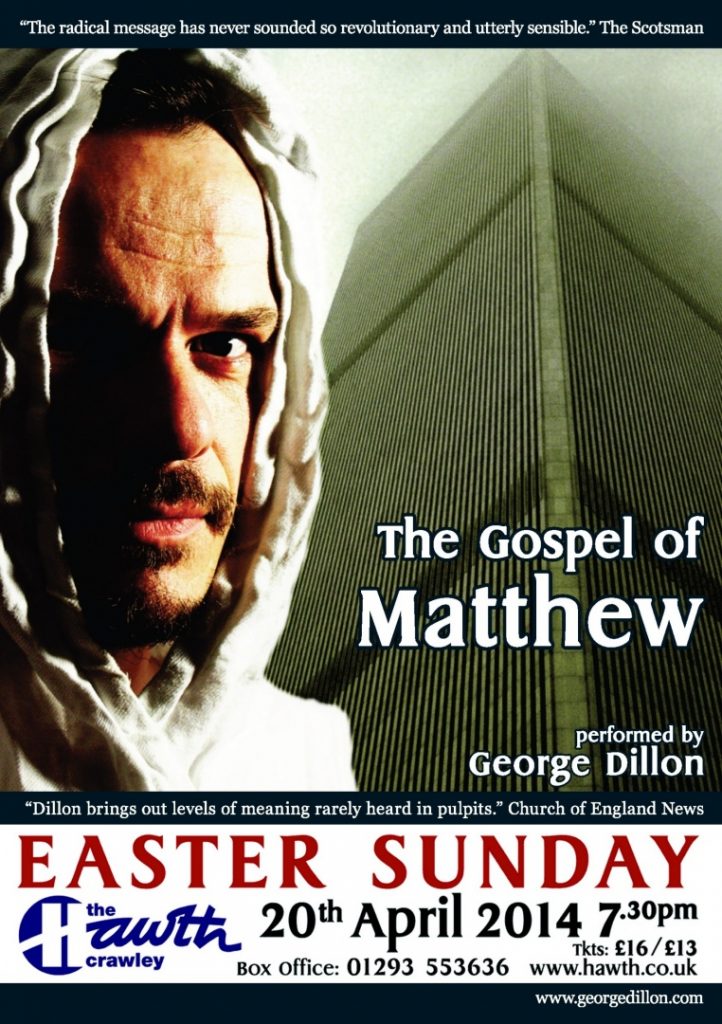
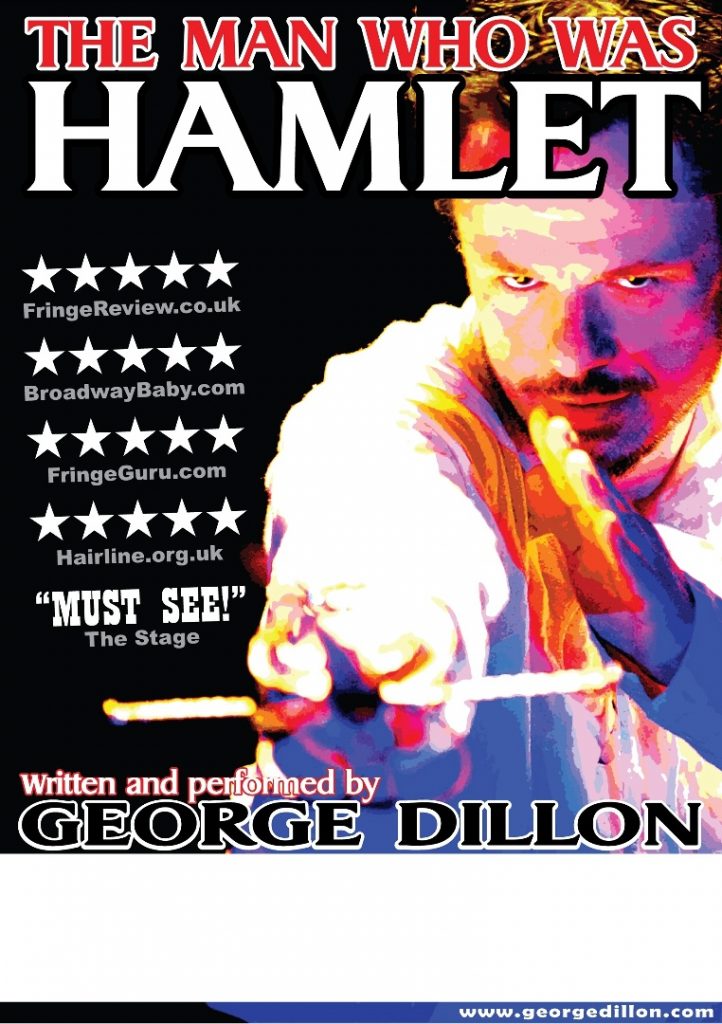
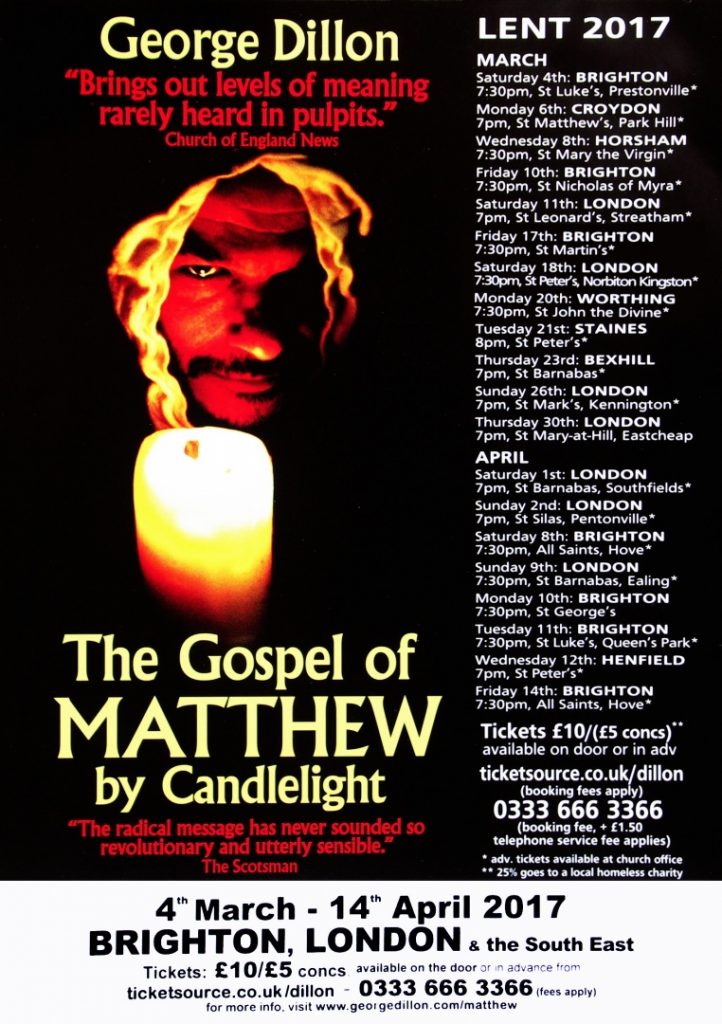
Directing
As well as Hamlet, Against the Odds and five of his seven solo shows, Dillon also directed the world premiere of Berkoff’s Brighton Beach Scumbags, assisted Berkoff on Salomé and Acapulco, conceived and directed an internationally acclaimed solo Under Milk Wood and directed Andrée Bernard’s solo musical House on Fire.
Other acting work
In addition to his own solo theatre work, George has also appeared in feature films – including Hannah’s War, Being Human and The Deaths of Ian Stone – twice played the villain-of-the-week on ITV’s The Bill – and has played several leading roles with repertory and touring theatre companies, including: Victor Frankenstein in Frankenstein at York’s Theatre Royal; Johnny Rotten in Pistols for Hanover Productions; Charlie Chaplin in The Secret Life of Charlie Chaplin for Fireraisers; Jason/Creon/Aegeus in Medea for Company:Collisions; and John Philip Kemble in Kemble’s Riot for Zincbar Productions.
As a voice artist he worked regularly on The Late Show, recorded a CD-Rom for Dyslexia Action and recently voiced an ambient music track for Glen Johnson.
Teaching and workshops
George Dillon is also an experienced teacher and workshop leader. Having trained to teach English as a Foreign Language and taught at language schools in Brighton and London, his acting and teaching experience combined in 1991 when he was invited by the Education Department at the Royal National Theatre to play Gregor Samsa in Metamorphosis at the Cottesloe Theatre and to take workshops on Berkoff’s theatre into schools. To date he has led over 250 workshops with professionals and students of various age groups, in schools and arts centres both in the U.K. and abroad.
Kendō
In preparation to play Hamlet, George began studying Japanese swordsmanship – Kendō and Iaidō – with Sensei Roald Knutsen on 6th May 1991. He attained the rank of Yondan (4th Dan) within the Eikoku Kendo Renmei in October 2017. His training and study of Kendō has informed much of his thinking and practice as a theatre-maker and teacher over the past 30 years.

